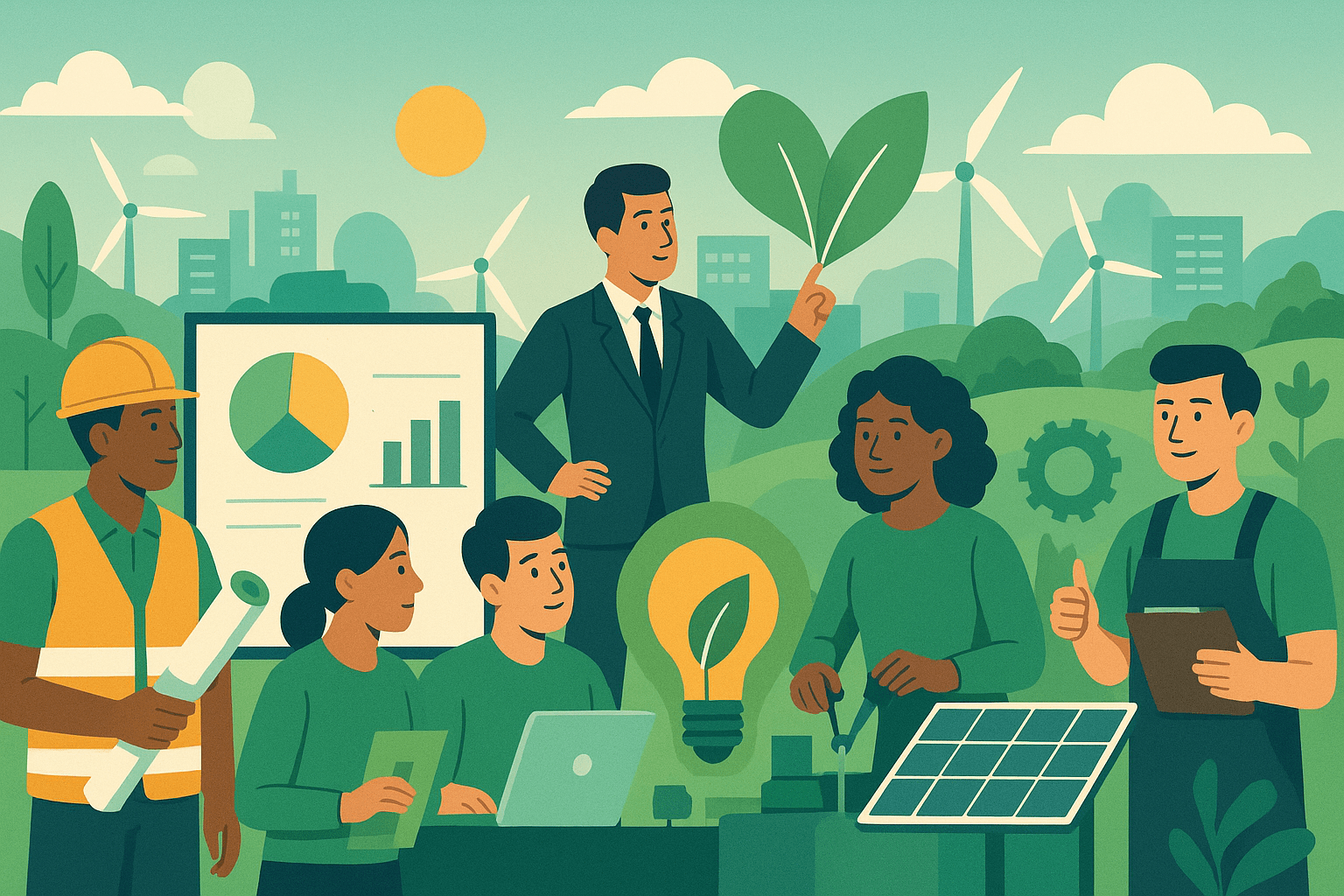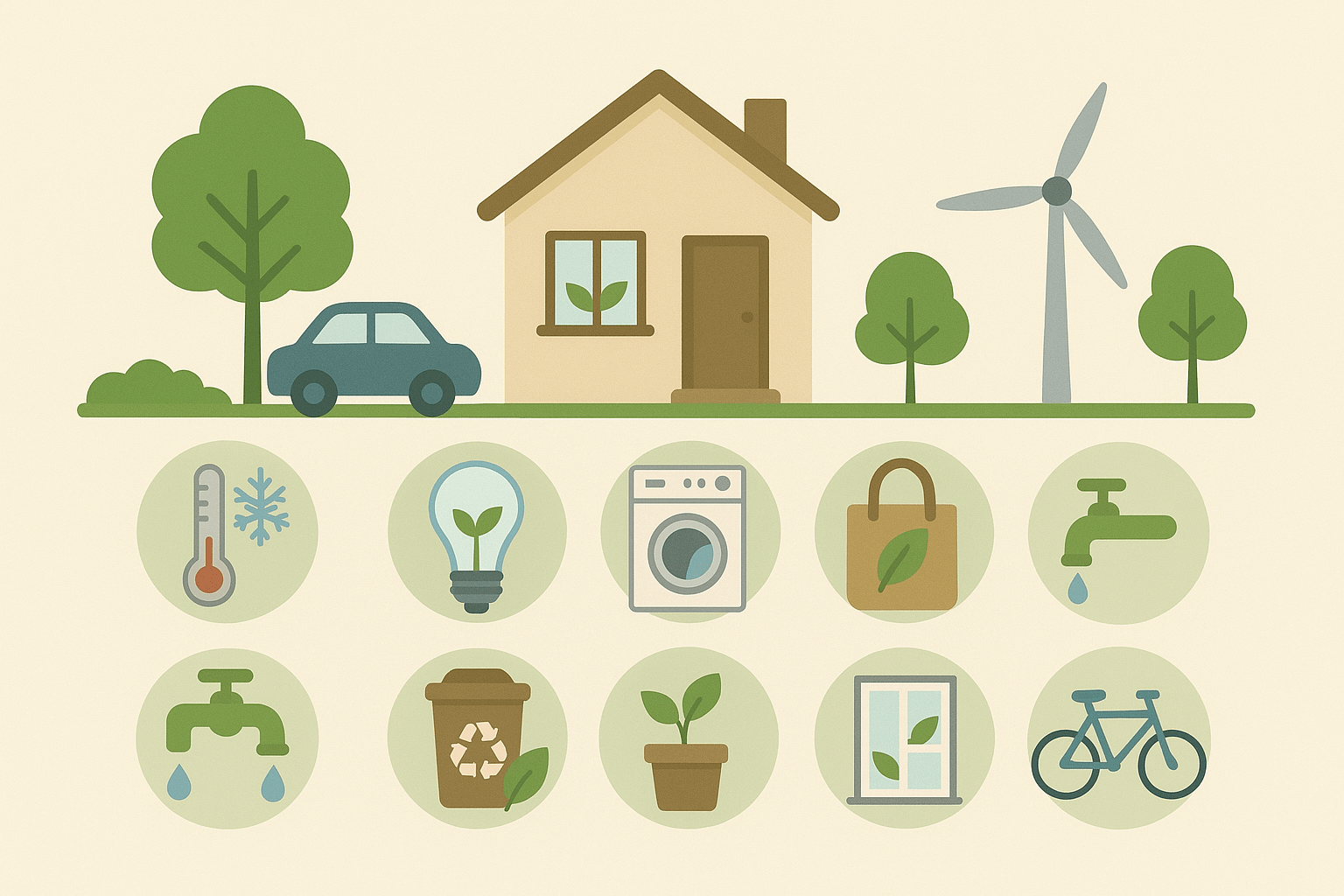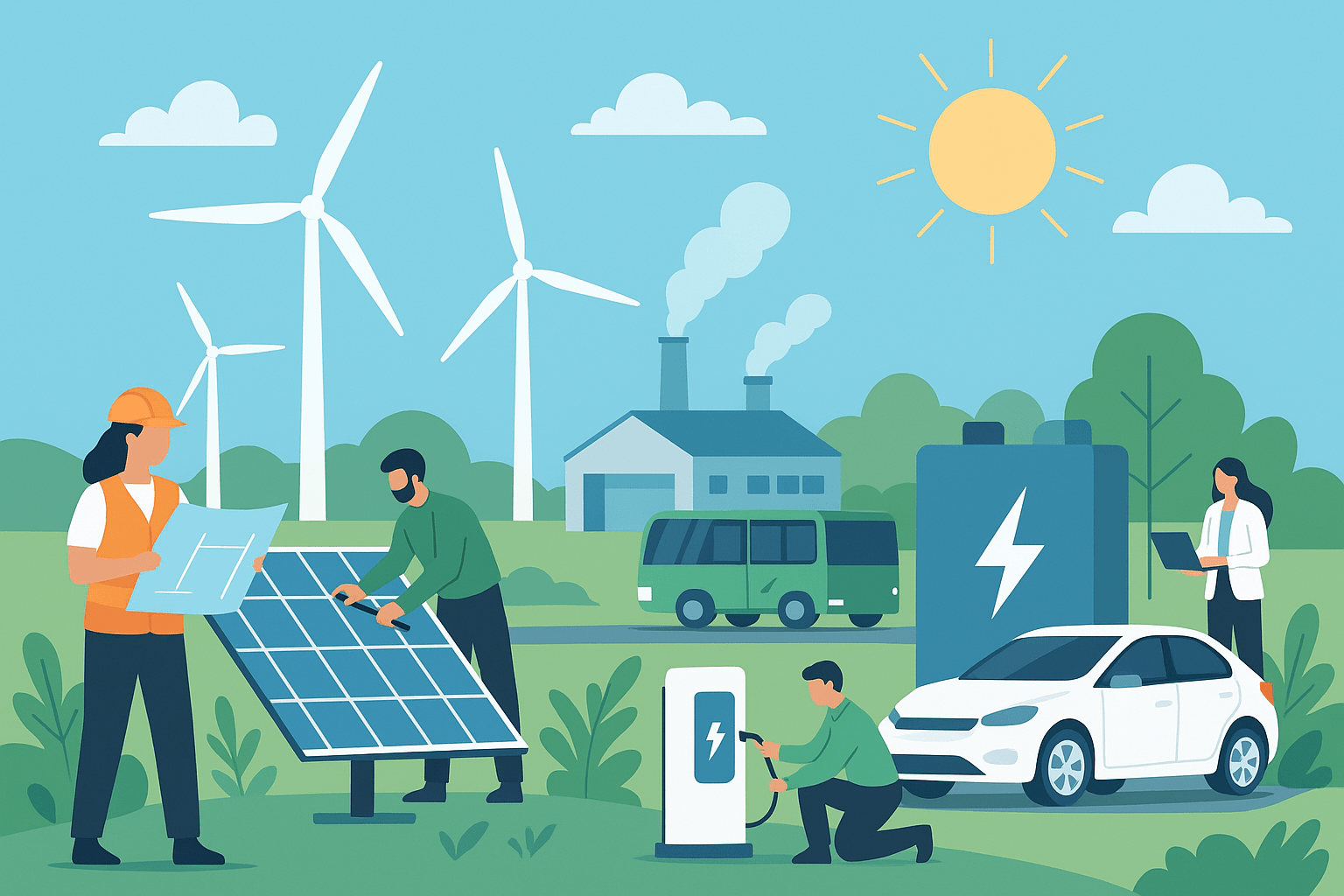Introduction
When I started digging into green jobs after writing about green jobs and the skills that are actually needed, one theme became crystal clear: we’re facing a mismatch. The demand for sustainability-related skills is surging, but the supply of people who actually have those skills isn’t keeping up. In fact, this gap could undermine much of the green transition unless we act urgently.
Here’s what my research uncovered, and what it means for workers, educators, and policymakers.
The Green Skills Shortage: Why It’s a Real Problem Right Now
One of the most compelling findings comes from LinkedIn’s Global Green Skills Report. Between 2023 and 2024, demand for green talent grew by 11.6%, while the share of workers with at least one green skill only grew by 5.6%(LinkedIn).
That’s nearly a 2:1 ratio: green hiring is outpacing the green talent pool (Sustainability Mag). LinkedIn also found that job seekers with green skills are 54.6% more likely to be hired than the workforce average (ESG News).
This isn’t just about having “green” on your CV, it’s about concrete, in-demand competencies.
Projected Job Shortfall in Renewables by 2030
According to the REN21 Global Status Report 2025, there’s a projected shortfall of 7 million skilled workers in core green sectors by 2030 (REN21).
- Alarmingly, 68% of energy-sector degree programs are still focused on fossil fuels, while only 32% are dedicated to renewables.
- This structural misalignment, education vs. green opportunities, is a core driver of the talent gap.
What Kind of Skills Are We Missing — and Why They Matter
Based on reports from the ILO and other international bodies, the green skills gap isn’t simply technical. It’s multidimensional.
Core Technical Skills
- Knowledge of energy systems
- Resource efficiency
- Green manufacturing
- Environmental services (ILO)
Soft and Transferable Skills
- Environmental awareness
- Project management
- Leadership
- Negotiation, teamwork, and innovation (ILO)
Emerging Green Skills
- Digital competencies, like data analysis for carbon modeling
- Sustainable procurement
- Circular economy thinking (LinkedIn)
The ILO’s practical guide on anticipating green skill needs also emphasizes the importance of data-driven forecasting, so training programs don’t become reactive or misaligned (ILO Guide).
The Economic and Social Risks of the Gap
If the green talent gap isn’t closed, there are real risks:
- Bottlenecks in the energy transition: As we scale up renewables, we may lack the workforce to build, maintain, and optimize infrastructure.
- Inequitable access: Green jobs could remain accessible only to those with advanced education, widening social disparities (ILO).
- Underutilized green investments: Governments and companies are investing heavily in green sectors, but without skilled people, those investments risk stalling or being less efficient.
Promising Solutions: How We Can Bridge the Gap
From my research, several strategies stood out, things that individuals, educators, and institutions can start doing right now.
Reskilling and Upskilling Programs
We need more initiatives like apprenticeships, micro-credentials, and bootcamps tailored to green skills. Programs from the Renewable Energy Institute are helping young professionals and career changers get the exact skills they need (Renewable Energy Institute).
Skills-Based Hiring
Companies should hire for demonstrable skills rather than formal degrees. Research shows that, especially in green and AI jobs, skills matter more than a university credential (arXiv).
Cross-Sector Policy Alignment
Training initiatives must be coordinated across education systems, labor ministries, and climate agencies. This is a core recommendation from the ILO’s “Skills for Green Jobs” project (ILO).
Forecasting and Data Infrastructure
Governments and institutions should adopt methodologies to predict future green workforce needs, rather than just react. The ILO’s “Anticipating Skill Needs” guide is a great starting point (ILO Guide).
Inclusivity in Green Training
Training must prioritize underrepresented groups, including women, low-skilled workers, and communities most impacted by climate change, so green jobs grow equitably (ILO).
My Reflections: What This Means for the Future Workforce
From where I stand, the green transition isn’t just about technology or money, it’s about people. We can build as many solar farms, wind turbines, and circular economy systems as we want, but if the workforce isn’t ready, we won’t fully benefit from them.
- For workers, this is a moment to reskill. Whether you’re in a traditional sector like construction or manufacturing, or just starting your career, green skills are likely to pay off.
- For educators and trainers, curricula must be redesigned, certification should be modular, and industry partnerships are critical.
- For governments and policymakers, investing in green human capital isn’t optional, it’s a linchpin for climate goals.
Conclusion: A Call to Action
If there’s one takeaway from my research, it’s that green skills are the hidden bottleneck of the clean economy. Addressing this gap isn’t just about creating more jobs, it’s about steering the green economy toward resilience, equity, and real environmental impact.
Coordinated action is needed, from global platforms like the ILO, to companies, to local training centers, to scale green talent fast enough. Unless we act now, the talent shortage might slow the very transition we’ve been writing about.


